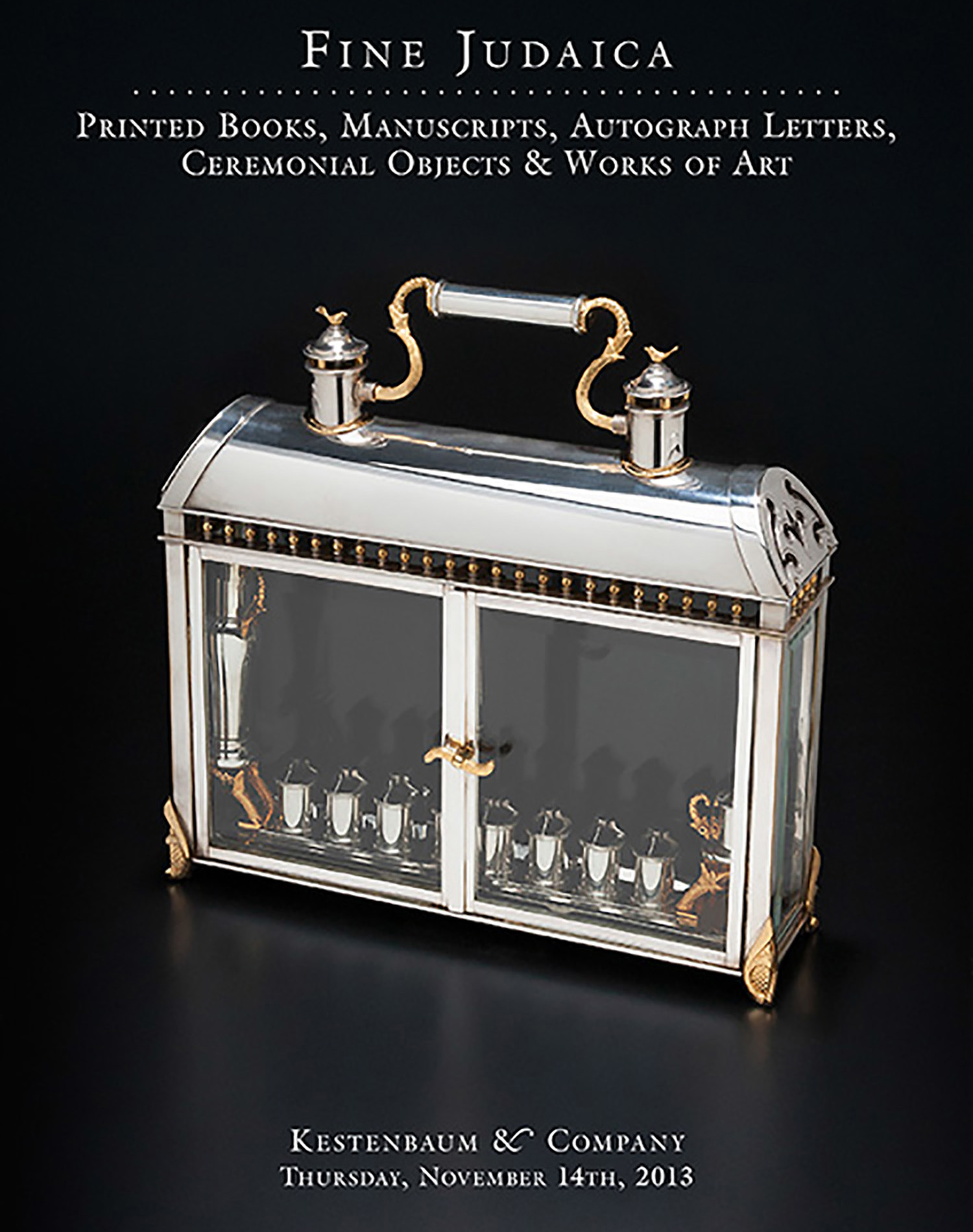The Sabbath Service and Miscellaneous Prayers, Adopted by the Reformed Society of Israelites, Founded in Charleston, South Carolina, November 21, 1825.

AUCTION 60 |
Thursday, November 14th,
2013 at 1:00
Fine Judaica: Printed Books, Manuscripts, Autograph Letters, Graphic Art and Ceremonial Objects
Lot 20
(AMERICAN JUDAICA).
The Sabbath Service and Miscellaneous Prayers, Adopted by the Reformed Society of Israelites, Founded in Charleston, South Carolina, November 21, 1825.
Charleston: J.S. Burges 1830
Est: $20,000 - $30,000
PRICE REALIZED $72,500
<<The first original Reform prayer book issued in the United States. of considerable rarity.>>
In 1824, a group of 47 members of the Kahal Kadosh Beth Elohim (KKBE) in Charleston, South Carolina, petitioned the leaders of their Congregation to make reforms to the Spanish and Portuguese customary ritual. They hoped their plan would revitalize Jewish life and attract more members. In particular they sought major changes in the Sabbath service (a shorter service, English translation of Hebrew prayers, a weekly sermon in English and new prayers reflecting contemporary American life be added.)
When the congregation refused to consider their proposal, the group led by Isaac Harby, Abraham Moise and David Nunes Carvalho formed an organization within the congregation to promote their reforms. Determined to replace “blind observance of the ceremonial law” with “true piety… the first great object of our Holy Religion,” the Reformed Society of Israelites for Promoting True Principles of Judaism According to Its Purity and Spirit sought for their services to become more “American” while retaining Orthodoxy’s core liturgy and teachings. They wished to worship no longer, as they put it, as “slaves of bigotry and priestcraft,” but as part of the “enlightened world.” Critically, they would go on to publish America’s first Reform Jewish prayer book, The Sabbath Service and Miscellaneous Prayers Adopted by the Reformed Society of Israelites.
Even though Harby’s original petition was influenced by his Reform-oriented peers in Frankfurt, his prayer book had no similarity to the German Reform prayer book published in Hamburg in 1819. “Germany had accomplished little and the whole movement in Charleston breathed the spirit of American freedom and liberality. Its constitution, creed, and prayers reflect much of the new republic’s laws and institutions.” (See L.C. Moise, Biography of Isaac Harby (1931) p. 41).
“For the first time, American Jews could choose from a variety of congregations and not just the traditionalist strategy of the ‘established’ Sephardic congregations. Moreover, Jews who did not feel at home in synagogue no longer had to compromise their principles for the sake of consensus; they felt free to withdraw and start their own congregations. In free and democratic America, congregational autonomy largely became the rule, resulting in a new American Judaism--a Judaism of diversity and pluralism” (Jonathan Sarna).
See Gary P. Zola,”The First Reform Prayer Book in America” in: Dana Evan Kaplan (Ed.), Platforms and Prayer Books (2002) pp. 99-117.
